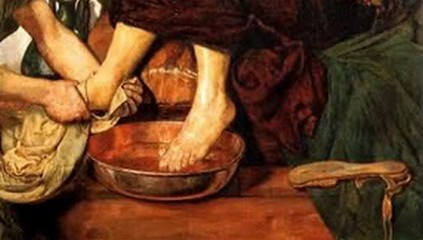In the last post we talked about the temptation of Christ in the wilderness at the very beginning of his ministry. This post will be about what temptation looks like for and in us. Tomorrow’s post will be about how we deal with temptation through our relationship with God and with each other.
The first point we need to make here is that temptation is not sin. I’m reminded of something Martin Luther is rumored to have said. “You can’t keep a bird from flying over your head, but you can keep it from building a nest on it!” To breathe is to be tempted!
Christian maturity is not indicated by the infrequency of temptation but by the infrequency of succumbing to temptation.
Douglas Moo
Secondly, it will be natural to be discouraged as we take some time to look at the temptations we face and how often we give into them. We must remember that when we sin, “we have an advocate with the Father, Jesus Christ the righteous.” (1 John 2:1).
We must take to heart this encouraging word from the book of Hebrews:
15 For we do not have a high priest who is unable to sympathize with our weaknesses, but one who in every respect has been tempted as we are, yet without sin. 16 Let us then with confidence draw near to the throne of grace, that we may receive mercy and find grace to help in time of need.
Hebrews 4:15-16 (ESV)
This is a familiar verse that I think bears slowing down and praying through. It makes a good Scripture for our Lectio Divina this week
Thirdly, we are not left alone to our own resources when we struggle with temptation. As hard as it might seem, we must remember that we are indwelt by a living God. In the throes of temptation, we can indeed practice the presence of our Lord Jesus Christ, calling on Him to help us! Leanne Payne never left this sentiment out of her teachings: “Apart from God we have been and are in many ways monstrous; we do monstrous things. When we are properly related to God, we silence the accuser of our souls by admitting, “Yes, I am capable of the petty; I am capable of the monstrous; and if He should leave me but for a moment, I should do yet worse.” Restoring the Christian Soul, p. 33.
Fourthly, we must believe that God is never the tempter. (He does test us – look at the last post for more clarity here). James 1:13-15 – 13 Let no one say when he is tempted, “I am being tempted by God,” for God cannot be tempted with evil, and he himself tempts no one.
14 But each person is tempted when he is lured and enticed by his own desire. 15 Then desire when it has conceived gives birth to sin, and sin when it is fully grown brings forth death.
James 1:14-15 (ESV)
Finally, we should not fall into the “temptation” of grading our temptations. It’s sheer pride to think “well, at least my sin is not as bad as some.” It’s also pride to think that no one could possibly know what we are going through, because our sin is so great. As we begin our discussion on temptation – let’s stop. Pray. Thank the Father that the triune God dwells in us. Let’s use our God-given imagination to see ourselves in His presence, standing at the Cross. Release self-condemnation, pride, shame, discouragement.
1 John is an incredibly helpful book to read when thinking about temptation and sin, especially chapter 2. I want to take a minute and look at a passage I’ve mentioned before, but which bears a second look!
1 John 2:16 – For all that is in the world–the desires of the flesh and the desires of the eyes and pride of life–is not from the Father but is from the world. (ESV)
Many of our temptations will fall in these three categories. The NIV and other translations use the word lusts in place of desires, which can be helpful for our study here. I think the first desire/lust is one we are most familiar with – the struggles with what Paul calls the flesh. Unholy appetites come to mind here – we can go to Galatians 5 and see his list.
The second temptation – the desire/lust of the eyes is one we probably don’t think much about. We would naturally put pornography in that list but I think we would be surprised to find what else might be considered lust of the eyes. I’ll give a personal example that I thought of as I studied the passage on Christ’s temptation. You remember when Satan showed Jesus all the kingdoms of the world and their glory (splendor, magnificence, grandeur – other translations)? You could say that Satan was luring Jesus into this “lust of the eyes” (look at the rocks, bread… post where I talk about concupiscence). Of course, Jesus did not sin!
I’m very aware these days of all that comes at me through social media (mostly Instagram). They pick the right ads for me, they know my hobbies, my interests, even desires. In fact, I would say the movers and shakers of Instagram are showing me the wonders of the world and all its glory (found in the purchases that I believe will make me a better knitter, quilter, cook…). I would have to say – what is required of me other than my money? – Could it be my addiction to consumerism, even my worship? I just googled worship (another fixation…) and this is what I found: “to worship is to show a lot of love and adoration for something.” Ugh.
The third temptation we also find in Satan’s temptation of Jesus. When Satan took Jesus to the highest peak there is and told him to throw himself down and command the angels to catch him, he was tempting Jesus to use his position as the Son of God to save his own life. He was tempting Jesus to what John calls “pride of life.” We too, are tempted by pride – often through our positions, roles, talents, spiritual gifts. Even our discouragement over our sins is a form of pride. I know many people who will not let go of their pasts because it’s become a part of who they think they are. Are any of us exempt from this sin? “Lord, have mercy.”
Let’s move on then and take a look at the observations I’ve made about temptation either through my own struggles or from my pastoral care for others. I am going to reserve the responses to these observations until the next post, in part because it’s good for us to sit with these for a while.
1. Temptation breeds in the indecisive will.
What I mean by this is that if we have not made a decision or a commitment to settle the sin question, we will have a very hard time withstanding temptation.
2. Temptation relies on impulsivity.
Do it now. Don’t think about it! This is where I get caught up into consumerism. Especially with Amazon purchases. Need I say more?
3. Temptation calls us to numb anxieties and fears.
4. Temptation thrives on procrastination.
This is my kryptonite. I’m the worst at postponing decisions about spiritual practices or praying through temptation. When I say I’ll deal with it later, it means I won’t deal with it at all.
5. Temptation counts on us isolating.
This is so real, isn’t it? When we are feeling overwhelmed by temptation all we want to do is retreat – go away from it all, in some misfortunate hope that it will all go away.
James 5:16 – “Therefore, confess your sins to one another and pray for one another, that you may be healed. The prayer of a righteous person has great power as it is working.”
6. Temptation triggers despair.
Even the temptation, which has not given birth to sin can trigger despair. This is so difficult, and so tragic. But, know friend, there is a way back to hope. Hold on, press in, practice His presence, call a friend.
I have a few final thoughts here. I don’t mean to leave you hanging! Tomorrow will come! I think Lent is a really good season to stop and think about and pray about how temptation drives us. It’s that kind of season – a time of reflection, a time of penitence, a time to really press into what is coming! Good Friday is on the horizon – and Resurrection life is on its way! Let’s remember our baptisms – that we have chosen the way of Christ, that we can in prayer, in Communion, take our place once again in His death and in His rising. Thanks be to God!
I want to end this post with part of a story called The Door in the Wall. A young boy was abandoned by his family and suffered greatly. A monk came to him and took him and cared for him and taught him. This is one of the lessons he taught Robin.
Brother Luke uses this as an opportunity to teach Robin greater lessons. He references something familiar to Robin: “‘Dost remember the long wall that is about the garden of thy father’s house?’” Robin replies, “‘Yes, of course. Why?’” The friar continues, “‘Dost remember, too, the wall about the Tower or any other wall?’” Robin nods. “‘Have they not all a door somewhere?’” The friar continues with conviction, “‘Always remember that. Thou hast only to follow the wall far enough and there will be a door in it.’” Robin promises that he will remember, though he is not entirely certain he knows what Brother Luke is trying to tell him. As the story continues, Brother Luke continues to teach Robin many things, including carpentry. “‘Remember, even thy crutches can be a door in a wall.’” From the children’s story – The Door in the Wall.
Amen. Glory to God.









